Before presenting a new movie, the studios have to produce teasers and trailers, which compress all the action into one or two minutes to guarantee the best results. Sometimes these trailers are the key to a movie's failure or success, so making an audience teaser is in deed a more serious task than we could imagine. Most of the music for these shorts are selected from already existing and well-known themes, but there are many original compositions as well, which have to reflect the film's nature despite the short running length. ParodiFair is specialized in selecting cues and writing original pieces for these trailers. We've talked to the Ms. Starr Parodi from this couple, who just released her newest album Common Places, which contains original works apart from the covers of well-known melodies (like the James Bond Theme). We asked her about the new CD, trailers, her film scores and everything behind them.
You and your husband are specialized in a specific area of composition – writing trailer music. How did you find each other and the genre?
We met backstage at the Universal Amphitheater which is a large concert hall in Los Angeles. I was onstage playing keyboards with two different artists (saxophonist George Howard and Gladys Knight) and Jeff had worked on the production of one of the artist's most recent records and was there to make sure that we had all the new keyboard sounds for that concert. Jeff and I found the genre of composing scores for trailers soon after we got married when one of our neighbors was working on a film trailer and since we both composed music, they asked us if we would like to work on it.
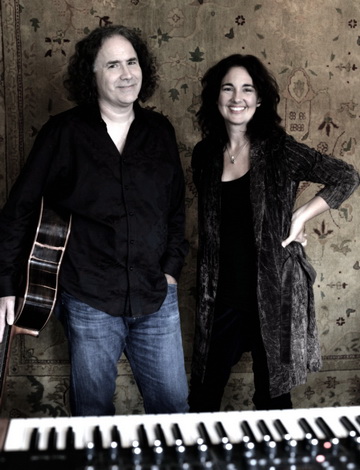 How do you two share the work to be done? Is it good or bad in having your private life and work be so connected?
How do you two share the work to be done? Is it good or bad in having your private life and work be so connected?We sit in our studio together, I'm usually at the main keyboard controller & computer sequencer and Jeff is either at the mixing console, at the Minimoog or has a guitar in hand and we write. We both share all the writing and production and bounce ideas off each other. I think it's really great that we can share the work part of our lives since we both love what we do. We are fortunate to be able to work together! (most of the time...).
What was the first trailer you composed for?
Straight Out of Brooklyn
You're not the only people busy in composing trailer music (like Immediate Music, X-Ray Dog, etc.). Is there a strong competition between the companies writing for trailers?
Yes, it is true that there are a lot of people & companies scoring movie trailers & there is certainly fierce competition as there is in any other entertainment field. In addition to scoring, a lot of of the music in film trailers now is being licensed from music libraries & other film scores and songs. I think because Jeff & I do a lot of music for other projects and are not just focused only on movie trailer music we don't feel the competition as much. We also have really great relationships with many of the producers that we have worked with over several years and know that they will call us if they need something... That being said, there is a lot at stake with advertising for big films because of all the money involved in making them so there is never any room to do anything but your best work!
Do you pay particular attention to other trailer pieces and the work of the other companies?
I pay attention to EVERYTHING! ... however my focus is not necessarily always on trailers, but more so on the creative aspects of music in general. Music is about conveying emotion and I really don't look at it as a competitive sport. I think that's what I set out to achieve with Common Places and the responses I have been getting from fans is that it seems to take them to another emotional place and give them a reprieve from the concerns of everyday life. For that I'm extremely grateful.
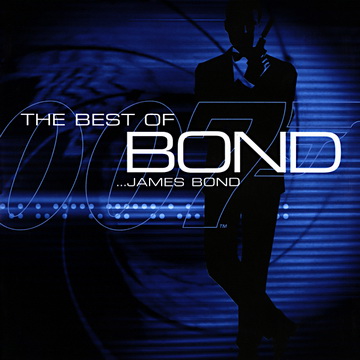 What's the usual routine in writing for trailers? How much time does it take to finish a composition?
What's the usual routine in writing for trailers? How much time does it take to finish a composition?It varies so much... Sometimes when we are reworking a theme we see very early footage of the film or even work from a script. In the case of GoldenEye, they didn't yet have the picture and just wanted us to come up with some ideas to update the theme for the introduction of Pierce Brosnan as Bond. We worked on ideas for about a month in between other projects... When the executives at MGM heard our demo they really liked it and cut the picture to our music. In other cases, we get a picture and need to get some music together over night. I remember calling all our orchestral musicians to do a scoring date on Christmas one year!, also, we recorded I Am Sam in our living room at midnight to be ready for the next day. Now as I think about it, a lot of music has been recorded in the middle of the night!!! There is so much going on in such a short amount of time in a trailer and the music really needs to reflect that... I think I would take as much time as I was given. [laugh] I would just keep refining it until someone said STOP!
Movie trailers often use famous themes from other popular pictures. Do you have any control on what other pieces could be used apart from your compositions, or is this always decided by the producers? Are you given free hand in deciding in what ratio will your compositions be used in the trailers?
So much of the music in trailers is licensed from other movies. Sometimes we even suggest themes that can be used in addition to our own if they are looking for a specific type of piece. Usually, the choice of other popular themes is already made by the time we get involved and the challenge musically for us is to make sure that our music transitions well from the existing music by choosing a musical key & rhythm that is compatible. Sometimes original music in trailers is used as a bridge from one theme or song to the next.
One of the hardest things about this short pieces is that they must have an immediate impact on the audience. Is it hard to compress the essence of music into one minute?
I wouldn't say it is hard but it is very intense. There is not a lot of time to build to a crescendo and in action trailers you pretty much have to amp it up very early. I have noticed that the action trailers that are most successful don't actually start off by hitting you over the head from the very beginning and do take some time to build.
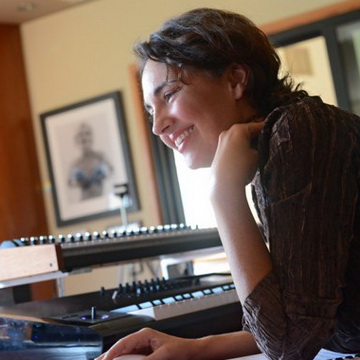 Are there any tricks you frequently use to get the job done in time and yet create something powerful?
Are there any tricks you frequently use to get the job done in time and yet create something powerful?Sleep is for wimps??... I think most good composers have their tricks. One thing that probably isn't really a trick but something I feel strongly about is the energy and emotion live musicians bring to the composition.
Are there any special recognitions (votings, awards) within the industry?
Yes, the biggest for movie trailers is probably the Key Art Awards held once a year in Hollywood at the Kodak Theater where the Oscars are also held. Just this year our trailer for GoldenEye was honored as one of the top trailers of all time at these awards.
How were you asked for the GoldenEye-project and what instructions did you receive?
It all started with a call from one of the executives at MGM/UA before the filming of GoldenEye began. He told my writing partner Jeff Fair & I that they were planning to update the James Bond film franchise and they wanted a new version of the theme to introduce Pierce Brosnan as Bond. We scored a demo that they really ended up loving and from that they cut the GoldenEye trailer picture to our music. This trailer really turned out more like a music video with only one line of dialogue and with the energy of the music driving the pace. After GoldenEye, we have done other versions of the theme as well and our music has been featured in some way during the campaigns of all the Bond films since.
How can a trailer composer make his or her name famous?
Do exceptional work. Trailers are completely anonymous and if you compose music that touches the public in some way they will find you. Fortunately this has happened on several of the trailers that Jeff & I have composed for.
How do composers relate to those who write the trailer pieces for their movies?
It's all mixed up together. Some composers who score films also score trailers and vice versa. The composer who scores the trailer almost never has a conversation about the music with anyone but the studio marketing department or the director of the film.
How often are you asked to recreate / rephrase famous melodies?
Sometimes but not that often. We have reworked The Bond Theme, Mission: Impossible, Wild Wild West, The Saint, David Bowie's song "Fame" and several others.
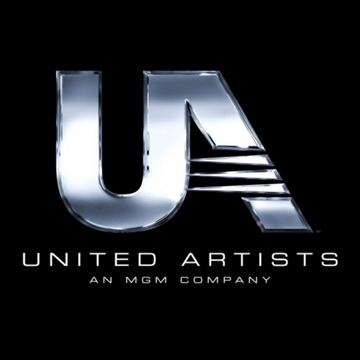 By composing the logo music for the United Artists company, you've joined the likes of greats like Jerry Goldsmith and Alan Silvestri, who also designed logo pieces. In what way was it different to compose a signature tune, that will be played for a really long time? How did you find this sound for United Artists?
By composing the logo music for the United Artists company, you've joined the likes of greats like Jerry Goldsmith and Alan Silvestri, who also designed logo pieces. In what way was it different to compose a signature tune, that will be played for a really long time? How did you find this sound for United Artists?This was a really exciting project for us. Our direction from the studio was to come up with a piece that encompassed the past, present & future of United Artists all in the expansive period of 14 seconds!! It was different writing a signature composition because we wanted to come up with a melody that embraced the direction we were given while still being instantly identifiable by the listener as the sound of United Artists. We had some time to try different ideas for the melody and orchestration concepts. We envisioned a swirling orchestral entrance with strings building to a majestic melody played by the french horns. Then at the end we used some synthetic percussion with vocal effect samples combined with the orchestra.
Which trailer composition is closest to your heart?
There's so many I have really enjoyed. I think one of my favorites is Rob Roy however if you ask me next week I may give you a different answer. [laugh]
You work in an area, where the commissioned compositions can be measured only in seconds. Are your feature length scores an "escape" from this kind of melodic confinement?
Every feature is different. The thing that I enjoy most in features is having the time to build an emotion or mood and give the characters space and create an emotional environment that helps propel the story. It's nice to have so much trailer experience to draw upon because of the diversity of styles we feel comfortable composing in.
Which film score was the most memorable to write and why?
To me The 18th Angel was the most memorable to write because I had always wanted to incorporate a boys choir in a score and that was my first chance to do so.
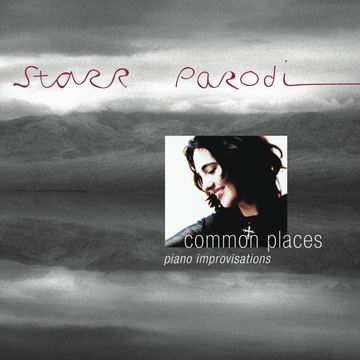 Your second album, Common Places was released just recently. Why did you decide to perform your works and some covers only on a piano?
Your second album, Common Places was released just recently. Why did you decide to perform your works and some covers only on a piano?The piano is my first love and kind of a touchstone in my life. I started out my musical life playing the piano and have done so for many significant artists too. My 1928 Steinway B is an extraordinary instrument that I have a deep connection with. It has a magical vibe that really translates when it's played as a solo instrument. In fact, it used to be on the MGM soundstage in it's most glorious era during the late 1920's through the 1940's and still has wads of gum on the bottom of the piano that have been lacquered many times over the years. It might be fun to get a little DNA testing on that gum!
On what basis did you choose which tracks should be covered by you?
It was nothing pre-meditated or logical... Just what I was feeling at the time of recording, they are songs and themes that are meaningful to me.
How did you name your instrumental compositions?
When I recorded the song Common Places I was thinking about nature and the power of it, that took me to a place of thinking about how important it is to find the things we all have in common as people, especially in a world that has become so divided & disparate. "Kenya" was inspired by a postcard that a friend sent me from Africa. "Forgiveness" is centered around a favorite quote about how what we don't forgive imprisons us. "Follow Me" reminded me of people running in a beautiful meadow, following each other and playing tag, and "We Are Here" is about being fully in the moment.
To whom do you recommend this album?
I am surprised at the wide variety of people who seem to be connecting with this record. It kind of defies genre. It's been called neoclassical in nature with some gospel and americana influences. One fan told me it sounded like Aaron Copland meets slightly bent ambient piano meets Portishead. My hope is that it will transport the listener to a beautiful place in their own imagination. People can listen to portions of all the pieces on my website,at CDbaby or on apple's iTunes. I also have 4 songs from the CD on my myspace page.
The ratio of original compositions and cover songs is exactly 50-50. Is there a concept behind this equality or is it pure coincidence?
The concept behind the recording was just to play... without any pre-concieved notions or road map. no music or chord chart in front of me. I wanted it to be stream of consciousness improvisations, which are improvisations with both melody and chord structure. I was inspired by the sound of the piano and my own inner thoughts and visualizations. The tracks that are not composed by me were not necessarily planned and don't follow the exact structure of the pre existing songs. I always loved the "Adagio in G minor" by Albinoni and wanted to explore that melody. I also felt very connected to the Bond theme and wanted to do a more mysterious and sensual version unlike the action driven productions that Jeff and I did on the trailers. It is a pure coincidence that there are 5 covers and 5 original pieces on Common Places. I just played what I felt and enjoyed. Often times when I sat down to record, I played something completely different from my pre-conception. In fact I'm finding that as I'm being asked to perform I am having to go back and learn what i played on the CD!
Can we expect an album featuring only your compositions? What are your plans for the future?
Right now I am very focused on supporting Common Places with some live concerts and possibly webcasts which I will be announcing on my myspace page. As for the future, I am continuing to score films and trailers and just taking it a day at a time.
To know more about Starr Parodi's work, please visit the ParodiFair's official website.
Special thanks to Tom Kidd
November 19th, 2006
November 19th, 2006








